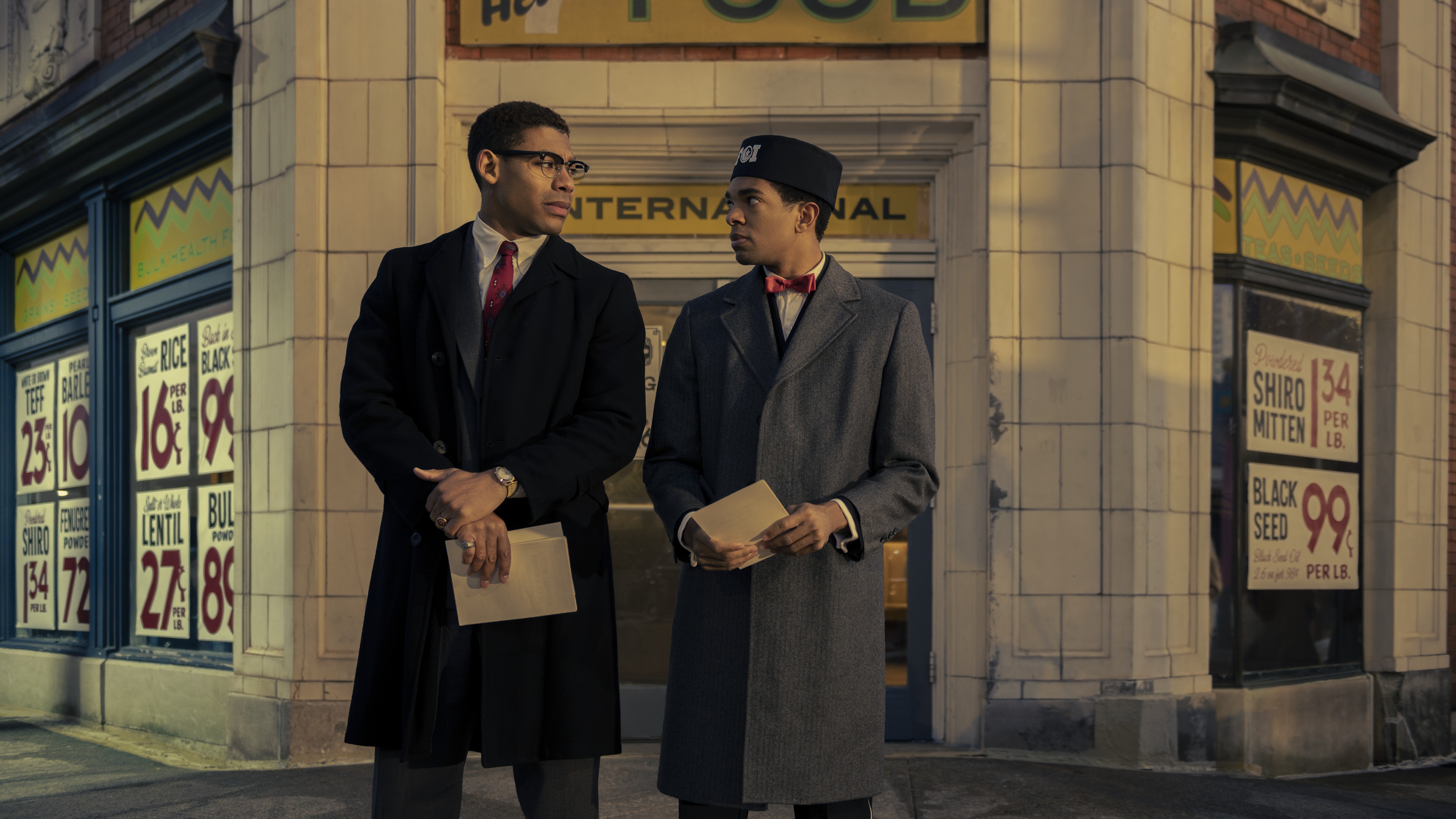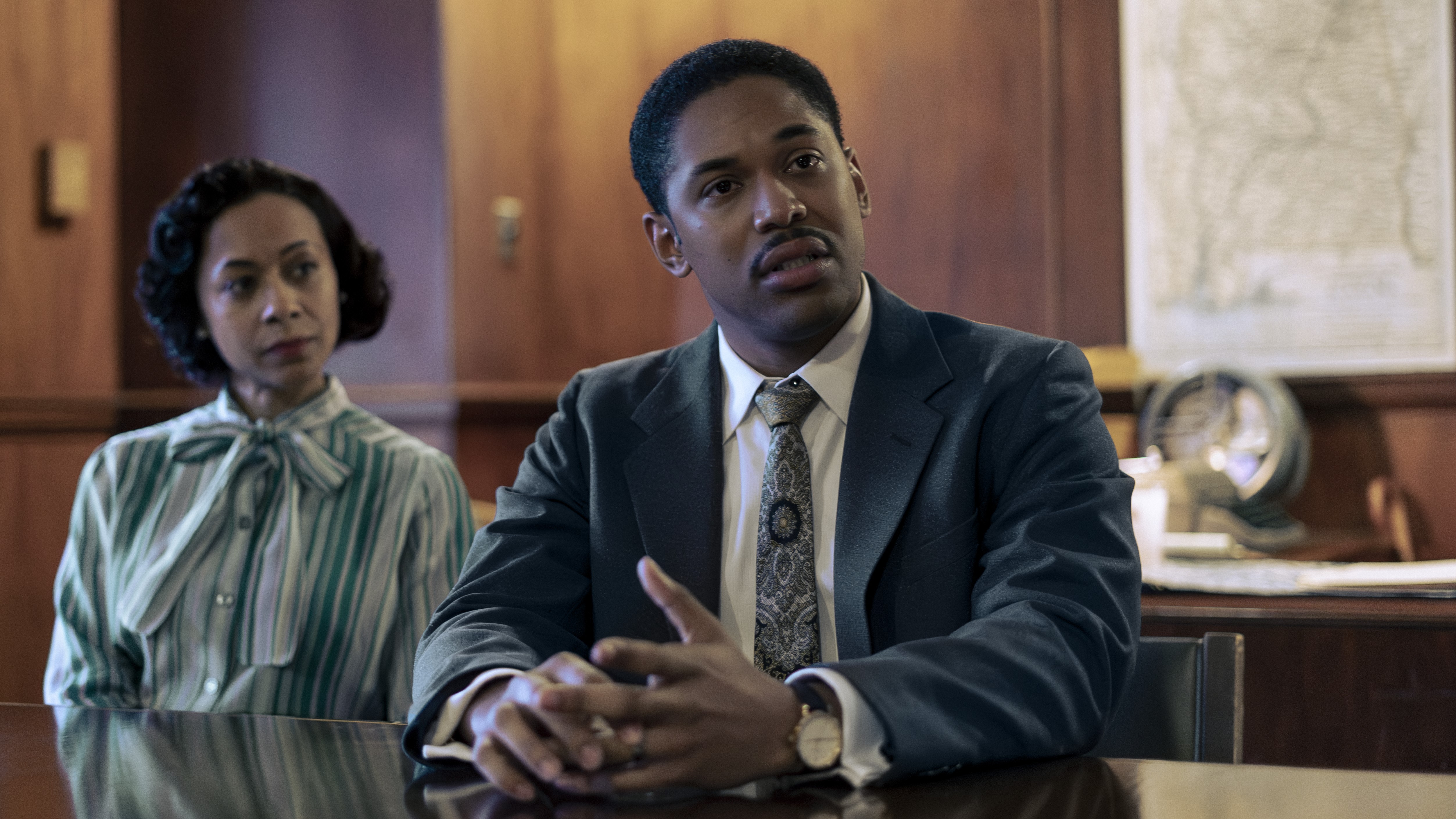Fact vs Fiction: Genius: MLK/X episode 3 — who is Hinton Johnson and how did Malcolm X help him?
Plus, did Martin Luther King Jr. own a gun?

The latest updates, reviews and unmissable series to watch and more!
You are now subscribed
Your newsletter sign-up was successful
Want to add more newsletters?

ONCE A WEEK
What to Watch
Get all the latest TV news and movie reviews, streaming recommendations and exclusive interviews sent directly to your inbox each week in a newsletter put together by our experts just for you.

ONCE A WEEK
What to Watch Soapbox
Sign up to our new soap newsletter to get all the latest news, spoilers and gossip from the biggest US soaps sent straight to your inbox… so you never miss a moment of the drama!
In Genius: MLK/X episode 3, both Malcolm X (Aaron Pierre) and Dr. Martin Luther King Jr. (Kelvin Harrison Jr.) take big stands in their fight for civil rights. Malcolm comes to the aid of fellow Nation of Islam member Hinton Johnson (Xavier Mills) as the latter is beaten by New York City police and later sues for a historic amount. Meanwhile, during his fight in Montgomery, Ala., King gets a gun to protect his family. However, did any of this happen in real life?
Here's what we found out.
Who were the women who refused to give up their seats before Rosa Parks?

The fiction
Text appears on screen that details the foundations of the Montgomery Bus Boycott. Claudette Colvin is mentioned as a teenager who in March 1955, refused to give up her seat on a crowded city bus on her way home from school. Then appears the statement, “Many more Black women did the same.” It’s noted that Rosa Parks was arrested for not giving up her seat on a bus in December of the same year, and the episode immediately cuts to 28 days into the boycott.
At a meeting between the Montgomery Improvement Association and the Montgomery City Council, Dr. King names "Rosa Parks, Claudette Colvin, Susan McDonald, Aurelia Browder and Mary Louise Smith," as Black women who were all demeaned on Montgomery city buses.
The fact
According to the History Channel, Rosa Parks was arrested on December 1, 1955, for refusing to give her seat to a white passenger on a Montgomery city bus, which was illegal in the segregated city at the time. By December 5, a citywide bus boycott had been organized and launched, with Dr. King and the Montgomery Improvement Association leading the charge.
As the boycotts were going on, Fred D. Gray and the NAACP sued Montgomery in U.S. District Court, seeking to have the busing segregation laws overruled. The case became known as Browder v. Gayle. The following were plaintiffs who practiced civil disobedience on buses prior to Rosa Parks' famous refusal:
- March 2, 1955, Claudette Colvin was 15 years old riding home from school and refused to give up her seat.
- April 29, 1955, Aurelia Browder a seamstress, owner of several businesses and mother to 21 children didn't give up her seat.
- October 21, 1955, Susie McDonald a seamstress in her 70s who walked with a cane, cited mistreatment at the hands of city officials on the public bus.
- October 21, 1955, 18-year-old Mary Louise Smith refused to give up her seat after a day spent trying to get her paycheck from her employer.
Did Martin Luther King Jr. own a gun?
The fiction
Dr. King and Coretta (Weruche Opia) are in their Montgomery home playing with their baby girl when their phone keeps ringing. The phone makes the married couple uneasy, and Dr. King is content with ignoring it. However, after it keeps ringing, he decides to answer it, and on the line is a voice that threatens to kill Dr. King, Coretta and their child. The threat prompts King to get a handgun from Ralph Abernathy (Hubert Point-Du Jour).
The latest updates, reviews and unmissable series to watch and more!
As the Montgomery Bus Boycott rages on, someone throws a Molotov cocktail into the King home. Thankfully Coretta and the baby are okay, but the incident rattles King. On a separate night, Coretta eyes her husband tucking the gun in the back of his pants, prompting her to express her discontent. However, he's resolved to protect his family as he sees fit.
It's not until he meets Bayard Rustin (Griffin Matthews) that he starts to truly adopt the nonviolent approach in the fight for civil rights and opts to get rid of the gun, wanting to practice what he preaches. He throws it into a lake.
The fact
Dr. King did own a gun while living in Montgomery. Additionally, according to The New York Times, after his home was bombed in 1956, he applied for an official permit to carry a concealed handgun, but his application was denied.
The Civil Rights legend would eventually come to be against guns in their entirety. As stated in The Autobiography of Martin Luther King, Jr.:
"I was much more afraid in Montgomery when I had a gun in my house. When I decided that I couldn't keep a gun, I came face-to-face with the question of death and dealt with it. From that point on, I no longer needed a gun nor have I been afraid."
Additionally, he noted, "How could I serve as one of the leaders of a nonviolent movement and at the same time use weapons of violence for my personal protection?"
Who is Hinton Johnson and how did Malcolm X help him sue New York City?

The fiction
While Malcolm X talks to Betty (Jayme Lawson) at a museum, the couple is interrupted with news that Malcolm X's mentee, Brother Hinton, was assaulted by the police. Malcolm X immediately jumps into action and leads members of the Nation to the police station where Hinton is being held. Malcolm X informs the officers they are not leaving until they see the young man. The police grant his request and Malcolm X meets with Hinton, who is badly bruised and suffering, prompting the Nation of Islam leader to demand Hinton receive medical treatment right away.
When Malcolm X recaps the incident with Elijah Muhammed (Ron Cephas Jones), he says New York City agreed to pay Hinton and the Nation $70,000 for the police brutality on Hinton.
The fact
Per Complex, on April 26, 1957, officers in Harlem cornered Reece Poe, a suspect in a case. When Poe resisted arrest, he was beaten. Seeing the incident unfold, Hinton interrupted allegedly shouting, "You're not in Alabama! This is New York!" The officers then focused their attack on Hinton.
Malcolm X then led a few hundred protestors to the jail where Hinton was being held without medical care, and the leader demanded the young man get help. Eventually, the police escorted Hinton to Harlem Hospital, and upon his release, escorted him back to jail.
As relayed by St. Mary’s University, the Nation of Islam later helped Hinton sue the city for the beating and was awarded $70,000, "the largest police brutality judgment that New York City had ever paid" at that time.
Episodes of Genius: MLK/X continue to air on Thursdays on National Geographic and become available on Fridays on Hulu and Disney Plus.
Terrell Smith has a diverse writing background having penned material for a wide array of clients including the federal government and Bravo television personalities. When he’s not writing as Terrell, he’s writing under his pseudonym Tavion Scott, creating scripts for his audio drama podcasts. Terrell is a huge fan of great storytelling when it comes to television and film. Some of his favorite shows include Abbot Elementary, Matlock, The Lincoln Lawyer, Survival of the Thickest, The Pitt and Godfather of Harlem. And a fun fact is he's completely dialed into Bravo Universe and The Young and the Restless (thanks to his grandmother).


